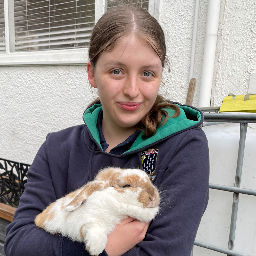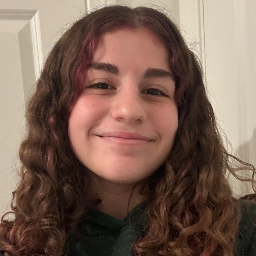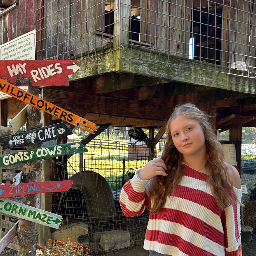How to Find a Babysitter for an Autistic Child (The Complete Guide)


Written by
Annabelle Carter Short
Autism Awareness Advocate

Medically Reviewed by
Gina Maria Jansheski, MD, FAAP
Board-Certified Pediatrician, Medical Reviewer

Illustrated by
Matthew James Taylor
Kidsit Founder, General Manager
Key Takeaways
- Look for babysitters with specialized training or proven experience working with children on the autism spectrum to ensure they understand communication styles, routines, and sensory needs.
- Prioritize traits like patience, stability, understanding, and level-headedness - especially important when behaviors are unpredictable.
- Use trusted sources: family, therapists, local autism-support groups, or websites like Kidsit that list caregivers with special-needs experience.
- Do a pre-visit and trial sessions so the child and sitter can become familiar and routines can be observed together with the parent nearby.
- Leave detailed written instructions: behavior plans, medical and emergency info, diet and routines, calming strategies, and communication preferences.
- Don’t overlook the babysitter’s needs: discuss logistical items like compensation, food, contactability, breaks, and how to handle unexpected situations.
Having a child with an autism spectrum disorder (ASD) can be daunting. They are little angels as much as the average child, albeit with one difference, they have communication and behavioral challenges. But show me a child who hasn’t displayed these at one time or another?
Any time you leave your child at home, you arrange for a babysitter, just like you would for your little one with ASD. The only difference is that you will need to make appropriate, more specific preparations for your special needs child.
If you need some time away due to work-related commitments, travel commitments, or even to have a well-deserved break, it is important to find a qualified babysitter.
The caregiver you hire should have specialized training and must be knowledgeable about how to handle special needs children. That way, you will have peace of mind knowing that your little angel is in good care.
What is ASD, and how does it affect my child?
Autism spectrum disorder (ASD) symptoms usually become noticeable by the time a child is two years old. Many people look back and see that the signs were actually present earlier. But, as the child grows, and language and social interactions don’t develop in the same way as children of a similar age, many parents then begin to seek out a diagnosis.
According to autismspeaks.org, autism affects an estimated 1 in 36 children in the US (source). From these figures, it is evident that this health problem is prevalent. It follows, therefore, that there is a demand for special needs-qualified babysitters.
Where Will You Find a Babysitter for an Autistic Child?
Children living with ASD will experience communication and behavior challenges, which makes it essential that a babysitter understands these symptoms for effective caregiving.
Where does one start to look when the need for a special-needs babysitter arises? Here are my recommended suggestions:
1. Use Kidsit (On Your Phone Or Computer)
Browse our special needs babysitters here on Kidsit and contact them for free, alternatively, post a job listing 'special needs' as one of your requirements and interested babysitters will contact you.
2. Immediate Family
Close family members are the ideal babysitters for your child with ASD. Older siblings, your spouse, or your partner, are the best caregivers. They know your child very well and have most likely already lived or spent quite a lot of time with them. They probably have an in-depth understanding of your child’s behavior and can usually more readily decipher their communication style.
It is crucial for a caregiver to understand what the child means even if they have rather unconventional methods of communicating.
Can a sibling babysit an autistic child? Learn about the age and maturity requirements of siblings here.
3. Close Relatives
If, for some reason, you are unable to find a babysitter in the immediate family, move on to close relatives. Among the uncles, aunties, and grandparents, you are likely to find at least one person who is willing and understands, reasonably well, the unique needs of your child.
4. Close Groups and Institutions
This would be the next best bet. Included in this group would be your children’s school. Teachers are experienced in dealing with kids on the spectrum, and they know what to do. They also could be teachers of your other children who, in this way, can be said to have a relationship with you.
You can think about turning to your support group that includes parents with children who deal with similar challenges. You will usually need to give a detailed briefing on your child’s needs and behavior, as well as the forms of communication your child uses and understands.
5. Therapists
Throughout your child’s life, you have probably dealt with different types of therapists, and they can come in quite handy in your search for a babysitter. They are likely to have a contact list of possible caregivers who are qualified for this kind of work and are located within the nearby area.
Be advised, however, that this source could cost you a little more. The advantage is that these sitters already know how to take care of a child with ASD and have been approved by a reputable source.
6. Neighbors
You may be lucky to have neighbors who are kind, understanding, and helpful. However, before you decide on which ones to approach, vet them carefully. Get references for them as you would anyone else. Ensure that you can trust the neighbor. The person should be aware of your little one’s challenges so that they can treat them with care.
There are also many reputable sites with information and sources about caregivers and daycare, such as Autism Speaks and The American Autism Association. Check out the blogs, chats, and resource guides on their websites for good tips, experienced advice, and making connections with other parents and professionals.
Searching for such specialized services from faceless persons comes with many worries. This is understandable, given that the internet has been a harbinger of many evils. However, it has also made life easier for people in so many ways, and there are many honest, good-hearted people out there. Here are some points to help you in your search and evaluation.
7. Daycare Settings
If your child is under elementary school age, you may want to consider a professional daycare. In a group setting, your child can practice socialization and communication with similar-aged peers, even before starting school.
There are many daycares that are knowledgeable about children with special needs, but it is important to check with them to find out if they are equipped with experienced staff and can work with you to develop an individualized program for your child.
There is much to consider when looking at a daycare program. First, make an appointment to talk with the director without your child present. That way, you can take the time to focus in on what the daycare has to offer, review the staffing and curriculum, and freely discuss your child's needs. Later, when you have narrowed your search to a few qualified options that have space available, you can bring your child to tour and meet the staff.
Things to think about when looking for a caregiver online:
- Ensure you contact the references given to obtain an evaluation of the advertiser before speaking to them or engaging their services. This reference check is critical. It can save you tears and anguish down the road.
- Check to see if they have certificates that confirm qualifications, skills, and knowledge, such as therapy and CPR training.
- Find out if they have specific experience dealing with children with ASD or some type of special needs.
- Meet them in person and ask the essential questions listed in the points above, along with other relevant issues like their discipline methods, how they handle transitions and administer medications.
- You could also ask them to refer you to several satisfied customers they have served in order to obtain formal references.
See our complete guide: How to run a background check on a babysitter for essential tips to help with this process.
Traits to Look for in a Babysitter
You could say that all sitters need to have these characteristics in order to do a good job taking care of any child. That is true, however, someone caring for a child with special behavioral needs will need them in abundance. You wouldn’t want to have them feel overwhelmed and not know how to de-escalate things when your child spirals into an episode of some type.
Experienced
First of all, you will want someone with experience. This shouldn’t be their first time in this situation, and many times this person will tend to be a little older. An exception to this might be a sitter that has a sibling or family member with ASD, and they have acquired skills just from daily living.
It can be helpful to ask about specific scenarios when you interview your potential sitter, questions like, “What have you found works best in dealing with a situation where a child does ... (referring to a specific behavior you know can be challenging)?”
Understanding
Many times this trait goes right along with experience. You want to be sure that some can see that your child might be struggling with something, like communicating a need, and be able to think it through to try and understand what is going on before reacting.
Level-Headed and Stable
Children with special challenges can really be a handful sometimes. Things that would otherwise seem quite normal can be triggers that set them off into a behavioral tailspin. If a sitter is balanced and doesn’t get upset easily, they can respond in a calming way that reassures your child and helps them to feel safe.
Patience
In the same way, sitters need to be able to just wait it out at times, and your child will calm down in their own time. Being patient allows a caregiver to have the perspective to know that what is happening in the moment isn’t permanent. If given some time and space, children will inevitably settle down at some point. Having the patience to gently work through episodes of anxiety about, frustration with, or resistance to an activity will gain a sitter loads of respect.
Each one of these traits is necessary when taking care of a child with special behavioral needs. During the interview process, you can focus on finding your potential sitter’s strengths in each of these specific areas to determine if they have the winning combination.
What Knowledge and Skills Should a Caregiver Have?
Regulation Techniques
Self-regulation refers to the body’s automatic interpretation of normal sensory input to the nervous system, which then turns into appropriate movements and behavioral responses when interacting with people and things in the outside world. A person with ASD has serious challenges with this process, which is as natural as breathing to an average person.
For example, one type of sensory input coming from the outside world is touch. A person with ASD who gets a pat on the back or a high five may perceive it to be a threat and respond inappropriately with escalating behavior in the form of a tantrum or panic attack.
A person with a sensory processing disorder, on the other hand, may crave tactile sensory input to the extent that they deliberately bump into things to obtain that input because they find it calming.
In both of these examples, the response does not match the data received, and it is not a typical reaction.
Children with ASD have an incredibly difficult time coping with change, yet life is full of changes almost every minute. They can, therefore, find it difficult sometimes to cope with life in general. Autistic children need to be approached in a way that allows their brains to move from one activity to the next, e.g., from eating dinner to taking a bath. This takes skill and experience on the part of the caregiver. Sometimes it goes very well, and other times it can go downhill quickly.
Find out what abilities your sitter has in this area. Give them potential scenarios and ask them what they would do or have done in the past. It is important to make sure they have some solid experience with this, so they don’t become overwhelmed.
4 Steps to Take When You Find a Babysitter
1. Arrange for a Pre-Visit
Once you have narrowed down the candidates to the people you think are most suitable, have them visit your house several times while you and your child are both present.
Experts recommend that the introduction of child and sitter should take place at a location where the child is most comfortable. It is also the best place to demonstrate the child’s desired routines, likes, dislikes, and any specific behaviors that the sitter will need to know how to deal with while you are away.
Remember, children with ASD do not like abrupt changes to their environment. The smooth hand-over in the same situation each time will make it easier for both the sitter and your child to adapt when you are gone.
2. Train the Caregiver on the Nuances of Your Child’s Behavior
No one knows your child like you do. And, no matter how much experience your chosen sitter has, they have not taken care of your child with their specific needs.
Give your sitter information on how you handle the typical situations that come up, ones you know they will see on a regular basis. Let them know some tricks that are sure to work in the most difficult times. That way, you can help your child have the best experience with someone that you know wants to contribute their knowledge and skills.
3. Leave a Checklist
Before you leave, download our Special needs child details form and fill in all the essential information your babysitter or therapist will require.
Here’s what to include:
- Key Information - Include your address and contact number, your doctor’s name and phone number, police and fire department numbers, and the name and cell numbers of the closest kin or friend to whom your sitter can turn in case they cannot get ahold of you in an emergency.
Also, make sure that you have spoken with the relative or friend to let them know what the arrangements are and that you have left their details with your babysitter. - Key Instructions - Be sure also to leave written instructions on the critical details such as what kinds of food your child eats and at what times, dosages of medicine, and when to administer it, bedtime and toileting routines, and methods of dealing with behavioral issues.
Also, think about including the type of clothes to dress the child in at different times of the day and any other details that you feel will be important for the well-being of your child.
4. Mind the Babysitter’s Welfare
Do not forget to plan for the welfare of your babysitter as well.
You do not want them having to leave your child alone to go out and get something important or take your child into an environment that is not conducive to their condition.
You should plan for and agree ahead of time on the babysitter’s food, sleeping arrangements, and access to a phone.
These little details make all the difference towards the success of the relationship between your special needs child and their babysitter.
Tips for Dealing with the Guilt
Now that you have found a babysitter for your little one, the next step is to deal with the feelings of guilt that are likely to arise.
The first thing to realize is you aren’t alone. About 61 percent of preschool children under five years of age are in a regular child care arrangement. Here are a few tips for managing the guilt.
Take the Time to Choose the Right Caregiver
Whether you have chosen a relative or a professional to look after your young one, make sure they are the best fit.
Ask yourself these questions:
- Does the babysitter’s caregiving style align with my parenting style?
- Are they trained in CPR and first aid?
- Can the person follow my child’s routine?
- Is the caregiver trained on communicating with a special needs child?
Prepare to Feel Some Conflicting Emotions
When placing your child in another person’s care for the first time, you are bound to experience some intense feelings. You are transitioning to a new phase, and someone other than you is watching over your little one. That might even make you a bit sad.
Take the time to have your feelings, and understand that this reaction is natural, expected, and shared by many.
Engage in Positive Self-Talk
Although it seems insignificant, one of the best ways to handle these feelings is to rid yourself of negative thoughts. Say things like:
- I am a wonderful parent.
- I do the best job that I can.
- My child is under great care because I have taken the time to choose a quality sitter.
- My feelings of guilt are normal, and I can control them. They don’t have to make me upset. I can acknowledge them and then let them go.
- I will see my baby in just a few hours.
Understand That it is Good for Your Child
There are many reasons why receiving care from someone other than yourself is beneficial to your child (source). They include:
- Childcare is good for both parents and children because it gives them a break from each other and helps avoid caregiver burnout.
- The parent will have the opportunity to nurture their professional and personal growth, which will bring them happiness and satisfaction.
- It enhances the child’s learning and development.
- It helps with the attainment of social skills by learning to develop a relationship with someone other than a parent.
Find Help
Feelings of anxiety, guilt, and relief are normal. If you are overwhelmed by the separation and can’t seem to talk yourself through it, however, consider discussing it with a professional. They will help you find different ways to manage the anxiety and negative feelings to help keep it in perspective.
Remember that your health is paramount as it dictates how well you can care for your little one in the long term (source).
I hope you are now equipped with everything you need to know about how to find a caregiver for your special needs child.
How do you interview a babysitter? Learn some essential tips and trusted techniques in our guide: How to interview a babysitter.
What qualities should your babysitter have? See our list of good traits to look for in a babysitter.
How much should you pay a babysitter? See our complete guide for parents on babysitter pay.
All the best!










































